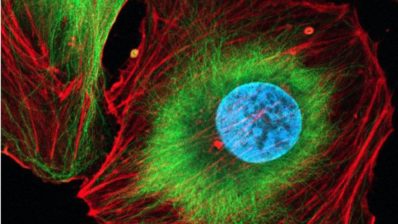The Centre for Genomic Regulation (CRG) has participated in the recent creation of DualSeqDB, a database with information about how pathogens and their natural hosts change their gene expression during the infection process.
The database contains the results of the massive and simultaneous sequencing of the genome of different bacteria and their hosts during an infection.
With these open access data, the scientific community could identify the genes used by different types of bacteria during the infection process of their hosts and thus create new therapeutic targets.
“Studying gene activity during infection processes using sequencing is one of the most highly cost-effective methods of discovering new drug targets.”
Benjamin Lang, postdoctoral researcher at the CRG and one of the creators of the database
Given the current situation of increasing bacterial resistance, resources such as DualSeqDB offer crucial knowledge for the future of antibiotics.
DualSeqDB: the host–pathogen dual RNA sequencing database for infection processes. Nucleic Acids Research, gkaa890, https://doi.org/10.1093/nar/gkaa890






